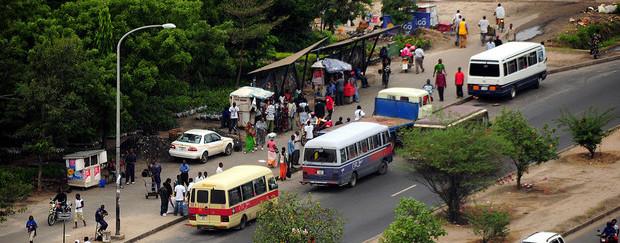Insiders Insight: Mugabe is survived by his family and system


The late Robert Mugabe. Credit: Al Jazeera English
African Arguments is and always will be freely-accessible to everyone.
But we also have a separate spin-off product called the Africa Insiders Newsletter. It consists of weekly emails with additional snappy insights on topics such as elections, conflict, health and more. It’s for those who want a bit extra and comes with a small subscription fee:
- Regular: $10/month or $100/year
- Patron: $15/month or $150/year. The extra 50% goes straight to funding African Arguments.
- Student/limited income: $2/month or $20/year.
The profits from the newsletter go into funding African Arguments’ free content.
Click here to SUBSCRIBE.
Table of contents:
- What everyone is talking about
- Robert Mugabe dies
- What we are talking about
- Xenophobia in South Africa
- Continental health corner
- Malaria eradication is possible
- Hear this word
- Women in South Africa ask ‘Am I Next?’
- Report of the week
- Re-imagining Europe’s relationship to Africa
- Election watch
- Will RENAMO derail elections in Mozambique?
- Links of the week
- Everything Africa-related that is worth your time and attention
Click here to SUBSCRIBE.
Free segment: What everyone is talking about
Robert Mugabe dies
The essentials: Robert Mugabe, the former President of Zimbabwe, liberation hero and ruthless dictator, respected intellectual and reviled squanderer died aged 95 at Gleneagles Hospital in Singapore on 6 September after a prolonged illness. No cause of death has been publicly announced.
The context: Mugabe was one of the defining actors of post-colonial Africa. An eloquent and well-educated man, he became the public face of resistance against the racist regime in Rhodesia in the 1960s and 70s.
After ten years of imprisonment, he assumed the leadership of the Zimbabwe African National Liberation Army (ZANU), a guerrilla force based out of Mozambique in 1975 and signed the Lancaster House peace agreement in 1979, which guaranteed a black majority government, but enshrined political and economic privileges for the white minority.
Beginning with his election as Prime Minister in 1980 and his ascension to the presidency in 1987 until his ouster in 2017, Mugabe was the focal point of Zimbabwean politics for almost four decades. His autocratic tendencies and tolerance of violence became apparent early on. In the early 1980s, a long-running political feud escalated into a campaign of ethnic cleansing by forces loyal to Mugabe in Matabeleland. About 20,000 ethnic Ndebele civilians are estimated to have been killed, many by the “5th Brigade”, a military unit trained and equipped by North Korea. Violent suppression of political dissent soon became the norm under Mugabe’s regime and was a key factor in his long time in power.
While Mugabe’s early reforms of the health and education system garnered widespread praise, they are seen more critically today given their quick deterioration as Zimbabwe’s economic fortunes turned. The long-running economic decline is widely attributed directly to Mugabe’s rule, which emphasised personal enrichment and a system of patronage, as well as the forceful expropriation of white farmers beginning in the 2000s.
The perpetual economic crisis, as well as Mugabe’s attempts to transfer more and more political power to his second wife Grace at the cost of long-time political allies, finally resulted in a military coup in 2017, which elevated Emmerson Mnangagwa, Mugabe’s former Vice President with a history in the intelligence services, to the top job. Mugabe was allocated a generous pension and freedom to continue to travel for medical treatment to Singapore, but was frozen out of political decision making along with his wife. Mugabe has repeatedly and publicly denounced his loss of influence and power, but was not able to gin up noteworthy support among the population or his party faithful.
The good: While his legacy will have a long-lasting impact on Zimbabwe, Mugabe’s death provides the country with an opportunity to take stock and move forward to address both the persistent economic chaos and the pervasive political violence that defines contemporary Zimbabwe.
The bad: Unfortunately, power is still largely in the hands of an elite shaped and elevated under Mugabe’s rule, which has little incentive to deviate from his script. President Mnangagwa has so far demonstrated the same instincts that dominated Mugabe’s rule.
The future: It is unlikely that Zimbabwe will ever see a figure dominating national politics like Mugabe again, which is an all around positive development. Ultimately, the same pressures that led to Mugabe’s eventual ouster will also come to bear on his successors sooner or later. But given the developments since 2017, real political change will likely take years to arrive.
- Mugabe was no revolutionary. He was obsessed with power and control (Africa is a Country)
- Robert Gabriel Mugabe, 1924-2019: A tragedy in three acts (Mail & Guardian)
- Zimbabwe’s Robert Mugabe dies, leaving behind a ‘very complicated legacy’ (Global Voices)
- Robert Mugabe, former Zimbabwe president, dies aged 95 (The Guardian)
- ‘Hero turned tyrant’: international reaction to Mugabe’s death (The Guardian)
- Robert Mugabe Was Zimbabwe’s Hero and Its Tyrant (New York Times)
- Robert Mugabe and the Fate of Democracy in Africa (The New Yorker)
- Robert Mugabe: Zimbabwe feud over late leader’s burial site (Al Jazeera)
Discuss with @PeterDoerrie on Twitter
Click here to SUBSCRIBE.
The Africa Insiders’ Newsletter is a collaboration between AfricanArguments.org and @PeterDoerrie, with contributions from @_andrew_green, @shollytupe, and assistance from Stella Nantongo. Part of the subscription revenue is funding in-depth and freely accessible reporting and analysis on African Arguments.





